Ever noticed how your dating compass seems broken after a narcissistic relationship? You’re not alone. 78% of women who’ve experienced narcissistic abuse report feeling completely lost when trying to date again.
In this article, I’m sharing the framework that transformed my own dating journey after narcissism—the same approach that helped hundreds of my clients rebuild their confidence. Sarah, a client who once swore off dating forever, met her partner within three months using these tools. You’ll discover powerful insights about how your attractiveness level shapes your dating perception, and practical steps to navigate the dating landscape with newfound clarity in 2025.
Key Takeaways
I. The Problem: The “Narcissistic Dating Hangover”
- Damaged Perception & Trust: Narcissistic abuse erodes your ability to trust your own judgment, making it hard to distinguish genuine kindness from manipulation (like love-bombing). You may become overly suspicious or miss actual red flags.
- Nervous System Dysregulation: Your nervous system needs recalibration to relearn what safety feels like and to accurately recognize danger signals.
- Ineffective Coping Mechanisms: Rigid checklists of “never again” traits often backfire, filtering out good partners while not protecting against sophisticated manipulators.
- Outdated Attraction Patterns: Attraction patterns formed over years (family, early relationships) won’t change overnight and need patient reprogramming.
- Unique Challenges: Conventional dating advice often doesn’t apply because you’re not starting from the same place as someone without this abuse history.
II. Understanding the Dating Landscape (Especially for 2025)
- The Attractiveness Advantage: Attractive people often develop a better understanding of human behavior and manipulation tactics because they receive more romantic attention and thus more “data” on how people act when they want something. This knowledge gap can be bridged by learning these patterns.
- Know Your “Real Dating Market Value”: Honestly assess your position in the dating market (considering age, appearance, stability, etc.) to form realistic expectations, avoid undervaluing yourself, and make empowered choices. Narcissists intentionally distort your self-perception.
- Complex Modern Dating (2025):
- Social media filters and AI-enhanced profiles make it harder to spot authentic connections and easier to hide red flags.
- Dating apps use AI algorithms that can perpetuate unhealthy patterns if you’re not aware and actively training them.
- “Situationships” are prevalent, requiring skills to identify partners genuinely available for commitment.
- Relationship timelines have accelerated; relationships tend to progress quickly or remain ambiguous.
III. New Strategies and Mindsets for Healthy Dating
- Rebuild Your Internal Guidance System: The core solution is to restore your ability to sense, in real-time, if someone is good or harmful for you.
- Choose Your Strategy: Hunting vs. Fishing:
- “Hunting” (actively pursuing specific individuals) works best for those at the top tier of attractiveness.
- “Fishing” (creating an appealing presence and selecting from those who approach) is generally more effective for most women, especially after narcissistic abuse which may have conditioned a “hunting” habit for unavailable partners.
- Supplement Traditional Therapy: While valuable for emotional healing, many therapists may lack practical knowledge of modern dating dynamics and narcissistic abuse recovery in this specific context. Seek additional, specialized guidance.
- Recognize Green Flags, Not Just Red Flags: After abuse, hypervigilance for red flags is common, but it’s crucial to also identify positive signs of healthy relationship potential (consistency, emotional regulation, respect for boundaries, how they handle “no”).
- Break Unconscious Relationship Patterns: Deep-seated attraction patterns, often formed in early life, can override conscious intentions. “Chemistry” might be your nervous system recognizing familiar (even if unhealthy) trauma patterns. This requires nervous system work, not just willpower.
- Ask Character-Revealing Questions Early: Go beyond surface-level questions. Inquire about past relationships, conflict resolution, and personal growth to reveal true character. How someone describes their exes is highly predictive.
- Rebuild Trust in Your Judgment: Systematically practice trusting your perceptions and intuition, starting with small decisions and low-stakes situations. Learn to distinguish anxiety from intuition. Your body often recognizes danger/safety before your mind.
- Focus on Boundaries That Actually Matter: Prioritize a few clear, non-negotiable boundaries (e.g., consistent respect, independence, honesty) over an overwhelming list of reactive rules. Communicate them calmly and consistently.
- Authentic Self-Presentation: Be mindful of how your dating profile and early dating behavior might unintentionally attract manipulative individuals (e.g., overemphasizing caregiving, endless patience). Present your authentic self, values, and interests.
IV. Actionable Steps
- The 7-Day Dating Transformation Plan: A structured approach to implement changes gradually:
- Profile Reset: Focus on who you are, not just what you offer.
- Body Wisdom Reconnection: Tune into physical warning/safety signals.
- Boundary Identification: Define core non-negotiables.
- Response Pattern Awareness: Notice your automatic reactions to attention.
- Early Dating Questions Practice: Master character-revealing questions.
- Self-Presentation Shift: Prioritize authenticity over people-pleasing.
- Dating Strategy Selection: Consciously choose “hunting” or “fishing.”
The overarching message is that dating after narcissistic abuse requires a specific, informed approach focused on rebuilding self-trust, understanding modern dating dynamics, recalibrating one’s internal guidance system, and consciously choosing strategies that align with reality rather than trauma responses.
The Narcissistic Dating Hangover
Have you noticed how your ability to trust your own judgment seems broken after a narcissistic relationship? You look at potential partners and can’t tell if they’re genuinely kind or just love-bombing you. You question every gut feeling, wondering if it’s intuition or just leftover anxiety from your past.

This is what I call the narcissistic dating hangover—and it’s extremely common. After narcissistic abuse, you find yourself trapped between two powerful forces: your natural desire for connection and your overwhelming fear of walking into another toxic relationship. It’s like standing at the edge of a swimming pool when you’ve nearly drowned before. You want to jump in, but your body freezes, remembering the danger.
Your perception system has been damaged during that toxic relationship. You might see red flags everywhere—becoming suspicious of normal behaviors like a partner needing alone time or having close friendships. Or worse, you might miss actual warning signs when they appear right in front of you, because your normal alert system has been compromised.

Most women try to solve this problem by creating rigid checklists of “never again” traits. They promise themselves they’ll never date someone who texts late at night, or who has a certain job, or who reminds them in any way of their ex. I see this all the time with my clients—they create these extensive lists of rules thinking they’ll protect themselves. But these checklists actually backfire in surprising ways. They filter out potentially healthy partners while still leaving you vulnerable to manipulative people who can work around your specific rules.
The research on narcissistic abuse recovery shows something important that most dating coaches won’t tell you. Your nervous system needs specific recalibration before healthy dating becomes possible. Your body needs to relearn what safety feels like and how to recognize danger signals accurately again.
The dating landscape of 2025 makes this even harder. Social media filters create unrealistic expectations, and AI-enhanced dating profiles make it difficult to spot authentic connections. Everyone looks perfect on paper. Everyone has the right answers to your screening questions. Technology has made it easier for people to present idealized versions of themselves, hiding red flags that might have been obvious in earlier decades when dating was more straightforward.

Your attraction patterns didn’t develop overnight. They formed over years—shaped by your family dynamics, early relationships, and countless small experiences that taught you what love should feel like. These patterns won’t change overnight either, no matter how many dating books you read or how determined you are to “do better this time.” Your attraction system needs patient, consistent reprogramming.
This might sound discouraging, but it actually points toward a solution. The answer isn’t about finding perfect partners—because they don’t exist. And it’s not about having an even longer screening process—because manipulative people will just find ways around it. The real solution is about rebuilding your internal guidance system—your ability to sense, in real time, when someone is good for you or harmful to you.
Dating after narcissistic abuse requires a completely different approach than conventional dating advice. The standard tips about being confident, asking the right questions, or looking for certain qualities simply don’t address the specific damage that narcissistic relationships cause. Your situation is unique. The normal rules don’t apply because you’re not starting from the same place as someone who hasn’t experienced this type of abuse.

Your past relationship was part of a pattern—likely one that started forming long before you met your narcissistic ex. This pattern shows up in who you’re attracted to, what behaviors you tolerate, and how you respond to red flags. But patterns can be broken with the right tools and understanding.
The first step to breaking this pattern is understanding how attractiveness shapes perception in the dating world. This might seem like a strange place to start, but it’s crucial. Because attractiveness—both yours and your potential partners’—dramatically affects how you perceive relationship dynamics and how others treat you.
In my work with clients recovering from narcissistic relationships, I’ve seen how transformative it is when they understand their true position in the dating world. It creates clarity. It helps them stop chasing unavailable partners or settling for harmful ones. It allows them to create realistic expectations about who might be a good match.

So let’s start rebuilding your dating compass by understanding the unique insight that attractive people have about human behavior—and how you can gain this insight regardless of your own appearance.
The Attractiveness Advantage
What if I told you that attractive people actually understand human behavior better than others? Sounds unfair, right? But this isn’t about fairness—it’s about a hidden reality of dating that explains why some women consistently make better partner choices than others.
Attractive people get to witness a side of human nature that others rarely see—how people behave when they want something from you. They have front-row seats to an unfiltered show of human behavior. When someone is trying to win you over, they reveal behaviors, motivations, and manipulation tactics they normally keep hidden. This continuous exposure gives attractive individuals an education in human nature that others simply don’t receive.

This creates a significant gap in understanding dating dynamics between those who’ve experienced being highly desired and those who haven’t. It’s like some people are playing chess with all the pieces visible, while others can only see half the board. This gap isn’t something most dating coaches or therapists address because it feels uncomfortable to acknowledge.
Let me be clear—this isn’t about vanity or suggesting attractive people are somehow better. It’s about information access. Attractive people see behind the mask that most people wear in everyday interactions. They observe how potential partners behave when motivated by attraction—the lies they tell, the commitments they break, and the lengths they’ll go to for attention. This exposure teaches them to recognize patterns that others miss.
Research shows attractive individuals receive approximately four times more unsolicited romantic attention. This translates to four times more data points about human behavior. Having this much experience analyzing how people act when they want something from you naturally makes someone more skilled at spotting manipulation and insincerity.
The advantage comes from seeing people’s authentic motivations when they’re trying to win you over. Attractive people regularly witness behaviors like someone claiming they’re “totally fine” with friendship while constantly pushing boundaries, or someone saying they want a serious relationship when they really just want physical intimacy.
This knowledge gap explains something I’ve noticed in my practice: many women who’ve survived narcissistic relationships were targeted precisely because they lacked this insider knowledge of manipulation tactics. Without exposure to various attraction behaviors, they couldn’t distinguish between genuine interest and love-bombing.
One client’s experience illustrates this perfectly. She came to me after escaping a two-year relationship with a manipulative partner who had love-bombed her intensely at the beginning. “I thought he was the only man who’d ever been that interested in me,” she explained. “How was I supposed to know the difference between passion and obsession?” She simply didn’t have the reference points to distinguish healthy pursuit from dangerous fixation.
The good news is that understanding this dynamic gives you power, regardless of your attractiveness level. You don’t need to be conventionally beautiful to gain these insights. What you need is to understand the patterns attractive people have already observed.
Think of it like this: some people have spent years collecting field data on human behavior in dating situations. You can benefit from their research without conducting all those experiments yourself. You can learn to recognize signs of manipulation, insincerity, and genuine interest by studying these patterns rather than experiencing them all firsthand.
You can gain these insights by immersing yourself in communities where these patterns are discussed openly. Listen to the experiences of highly attractive friends without dismissing them as “humble brags.” Pay attention to how people behave around others they’re attracted to. Accept that there are patterns to human behavior in dating that transcend individual situations.
One of the most powerful things you can do is acknowledge that this knowledge gap exists. When you stop assuming everyone experiences dating the same way, you open yourself to learning from those with different experiences. You start looking for patterns rather than treating each dating experience as completely unique.
Moving forward, we need to honestly assess where we stand in the dating marketplace to make smarter choices. This isn’t about ranking yourself on an arbitrary scale of attractiveness. It’s about understanding your position in your specific dating pool, so you can make realistic, empowered choices about who to pursue and how.

In the next section, we’ll explore how to accurately assess your real dating market value—not to make you feel bad about yourself, but to give you strategic information to find healthy connection without wasting time on unrealistic pursuits or settling for partners who don’t truly value you.
Your Real Dating Market Value
When was the last time you honestly assessed your value in today’s dating market? Most women never do this crucial step. They either believe they deserve the absolute best without any self-reflection, or they undervalue themselves so severely that they accept terrible treatment. Both approaches lead to the same place—disappointment and heartbreak.
Understanding your actual position in the dating marketplace is about making realistic, empowered choices based on who you actually are, not who you wish you were or who your narcissistic ex told you that you were. This assessment gives you clarity about which partners are likely to value you appropriately and which ones might either take you for granted or never commit because they have too many options.

Many women coming out of narcissistic relationships struggle with this assessment. Some severely undervalue themselves, thinking “I should just be grateful anyone wants me after what I’ve been through.” Others overcompensate with unrealistic expectations, determined never to “settle” again, but failing to recognize that their standards might not match their dating market position. Both reactions stem from the emotional impact of narcissistic abuse, not from clear-eyed reality.
I see this clearly in my practice. A client named Jessica came to me after her divorce from a narcissistic husband. She was 41, financially stable, emotionally intelligent, and physically attractive, yet she was dating men who treated her poorly. When we explored why, she admitted she felt “damaged goods” and believed no quality man would want someone with her history. Her self-perception was completely disconnected from her actual dating market value.

The dating marketplace has clear patterns, regardless of how much we wish it didn’t. Factors like age, physical appearance, emotional stability, financial status, and relationship history all affect your position. This isn’t about judgment—it’s about reality. Just like in real estate, there’s no benefit to pricing your house at twice its market value. You’ll just end up sitting on the market with no serious offers.
Research shows that women who accurately assess their dating market value report 67% higher satisfaction in subsequent relationships. When you know your true value, you stop pursuing partners who will never value you appropriately, and you stop accepting poor treatment from those who recognize they can get away with it. You start making choices that align with reality rather than wishful thinking or trauma responses.

Your value encompasses physical appearance, emotional stability, communication skills, conflict resolution abilities, financial independence, and genuine kindness—a trait that becomes increasingly valuable as people age and recognize its importance in long-term happiness.
The narcissist in your past likely manipulated your self-perception to keep you believing you couldn’t do better. This is textbook narcissistic abuse—they systematically tear down your self-worth so you won’t leave them. These distortions affect your choices even after the relationship ends. As one client told me, “My ex convinced me I was the most difficult person to love. Now I feel grateful when someone tolerates my normal human emotions.” This distorted perception led her to accept emotional unavailability because she didn’t believe she deserved better. After reassessing her dating market value, she realized she had been significantly undervaluing herself, which transformed her approach to dating.

Understanding your true value enables strategic decisions about who to pursue. You can focus on partners likely to appreciate what you bring to the table, set boundaries based on your actual worth rather than fear of abandonment, and quickly recognize when someone offers less than you deserve.
So how do you accurately determine your dating market value? Start with empirical evidence rather than emotions. Which types of partners have genuinely pursued committed relationships with you? How do people respond to your boundaries? These patterns reveal more about your market position than theoretical assessments.

Next, get honest feedback from trusted friends who want the best for you—not those who always tell you what you want to hear, but those who tell you the truth with compassion. Ask how they see you compared to other singles your age.
Finally, realistically assess how you compare to others in your dating pool across multiple dimensions. This isn’t about creating insecurity but gaining clarity about your strengths and areas for growth.
This self-awareness sets the foundation for understanding whether you should be ‘hunting’ or ‘fishing’ in your dating approach—a critical distinction we’ll explore next. Knowing your true dating market value helps determine which strategy will work best for your specific situation and save years of frustration in your search for a healthy, loving relationship.
Hunting vs. Fishing: Your Dating Strategy
Are you exhausting yourself chasing specific men who never commit, or are you drowning in attention from men you’re not interested in? This dating dilemma affects almost every woman I work with, especially after narcissistic relationships.
There are two fundamental dating strategies that most people never talk about. I call them hunting and fishing. Hunting means you identify specific individuals you’re interested in and actively pursue them. You make the first move, initiate conversations, and work to capture their interest. Fishing, on the other hand, means you create an appealing presence and then select from the people who express interest in you. You cast your net wide and choose from those who approach.

Here’s where most women go wrong: they use the strategy that feels comfortable rather than the one that would actually work for their situation. When you use the wrong approach, you experience repeated disappointment and waste enormous emotional energy. I see this constantly with my clients – they’re hunting when they should be fishing, or vice versa.
The research shows something most dating coaches won’t tell you: hunting works best for those at the top tier of attractiveness, while fishing is more effective for everyone else. This reflects reality. Research indicates that conventionally stunning people can usually pursue specific individuals with good results. For most women, however, fishing yields much better outcomes.

Narcissistic abuse often pushes women toward the wrong approach. Your past relationship may have trained you to chase unavailable partners. The narcissist probably made you work for every scrap of affection, teaching you that love requires constant pursuit. You learned that relationships mean proving your worth over and over. This trauma creates a hunting habit that feels natural but often leads to disappointment.
Consider Maria, one of my clients who spent two years in an exhausting cycle of pursuing disinterested men. She would spot someone attractive at work or a social event, then strategically plan “accidental” meetings. She’d craft perfect texts, constantly thinking about her next move with these men who showed minimal interest. Her dating life left her drained and discouraged.
When we assessed her dating market value honestly, Maria realized she’d been hunting when fishing would serve her better. Within three months of switching strategies – focusing on creating an appealing presence and evaluating men who approached her – she met her now-husband. He approached her at a friend’s gathering, clearly valued her from the start, and consistently showed interest without playing games.

Research shows women who match their strategy to their market position are three times more likely to find compatible partners. When you use the right strategy, you focus your energy where it’s most effective, stopping the waste of time on approaches that rarely work for your situation.
Your past narcissistic relationship conditioned you to equate uncertainty with excitement and to mistake anxiety for attraction. You likely learned that love means chasing someone just out of reach. These harmful patterns push many women toward hunting, pursuing partners who never fully commit. This strategy rarely leads to healthy relationships.

The 2025 dating landscape complicates this further because different platforms cater to different strategies. Some apps are designed for hunting – letting you identify and approach specific people. Others are built for fishing – showing your profile to many people and letting you select from those who express interest. Using platforms misaligned with your optimal strategy guarantees frustration.
Switching strategies might feel uncomfortable initially. If you’ve been hunting, fishing can feel passive. If you’ve been fishing, hunting can feel frightening. But making this switch dramatically increases your chances of finding healthy connection by aligning your approach with reality rather than trauma responses.
To determine your ideal approach, honestly assess: Are you regularly approached by the kind of partners you’d consider dating? If yes, fishing will likely work well. Do you find yourself having to initiate with most desirable partners? Then adjust your expectations or improve your fishing technique rather than continuing to hunt.
Women can sometimes hunt successfully even without top-tier attractiveness by being very direct. But generally, fishing proves more effective for most women, especially those recovering from narcissistic relationships. Fishing requires patience and strong boundaries but shows you clearly who values you from the beginning.

Now that you understand which dating strategy might work best for your situation, we need to address another obstacle in your path: why traditional therapy might actually be hindering your dating success.
Why Your Therapist Doesn’t Get Modern Dating
Has your therapist ever given you dating advice that sounds nice but fails completely in the real world? You’re not alone. After working with hundreds of women recovering from narcissistic relationships, I’ve noticed a concerning pattern.
Traditional therapy often uses outdated relationship models that don’t account for 2025’s complex dating landscape. Your therapist means well and wants to help you heal. However, a significant gap exists between healing in theory and navigating modern dating in practice.
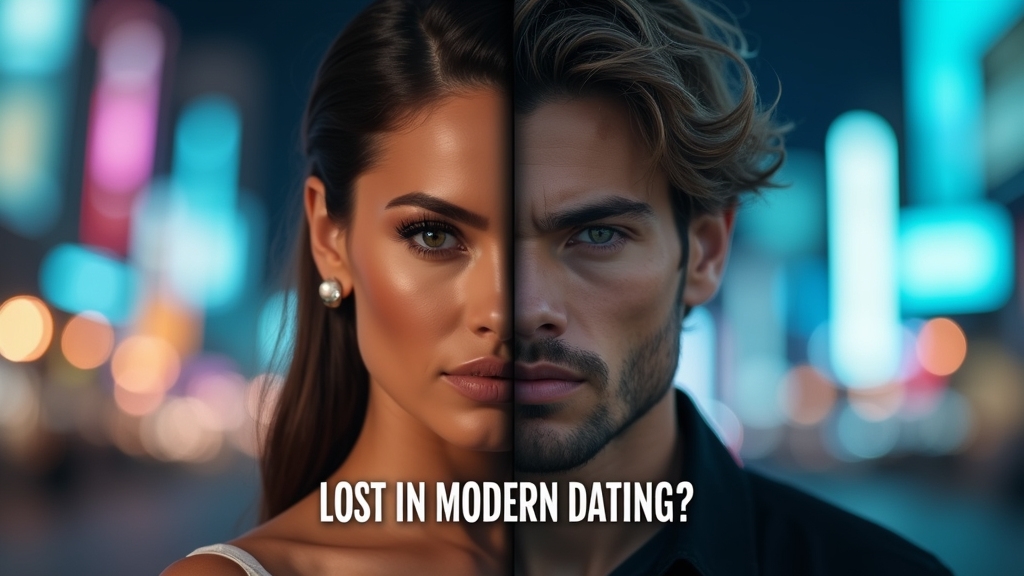
Many therapists focus on healing past wounds but lack practical understanding of how modern dating works, especially after narcissistic abuse. They encourage you to “be yourself” and “communicate openly”—wonderful advice for healthy relationships. This approach can leave you vulnerable when dealing with manipulative people who see authenticity as a weakness to exploit.
Consider this reality: the average therapist completed their training 12 years ago. That’s before dating apps dominated the scene, before social media became a primary courtship channel, and before the current relationship economy transformed how people meet. It’s comparable to seeing a doctor who learned medicine before MRIs existed—they know the basics but miss critical modern tools and knowledge.

Research shows that only 23% of licensed therapists receive specific training on modern dating dynamics and narcissistic abuse recovery. Most therapists, despite good intentions, simply don’t understand your unique challenges. They haven’t studied the specific manipulation tactics narcissists use on dating apps or how the dating landscape has evolved.
“My therapist kept telling me to ‘trust the process’ and ‘open my heart to new connections,'” Melissa told me. “Two months after following her advice, I found myself with another manipulative partner who sensed my reluctance to trust my gut feelings. My therapy had actually made me more vulnerable, not less.” This experience highlights how well-meaning therapeutic advice can backfire in today’s dating environment.
Your therapist might inadvertently reinforce idealistic expectations rather than preparing you for dating reality. They tell you the right person will appreciate your vulnerability, honest communication solves most problems, and setting clear boundaries will be respected. In healthy relationships, this holds true. But the dating pool includes many people who specifically target those showing vulnerability and intentionally violate boundaries.

Most therapy approaches focus on individual healing but neglect the practical skills needed to identify high-value partners today. They help you process trauma and rebuild self-esteem—essential work—but rarely teach you how to recognize love-bombing on dating apps, spot inconsistencies in social media profiles, or test someone’s character effectively in early dating stages.
When Emma came to me after six months of therapy, she had made great progress processing emotions about her narcissistic ex. But she still couldn’t identify potential red flags in new partners. Her therapist had helped her feel better about herself but hadn’t equipped her with practical skills to date safely. She knew why she had been vulnerable to narcissistic abuse but not how to avoid repeating the pattern.
You can supplement your therapy with specific knowledge about modern dating dynamics. You need both emotional healing and practical dating skills. Traditional therapy provides valuable emotional healing, but you need additional guidance to navigate the modern dating world, especially after narcissistic abuse.

Traditional therapy often falls short in addressing 2025’s dating landscape. It wasn’t designed to help you understand how dating apps alter relationship formation, how text messages can be used for manipulation, or how social media creates false impressions of compatibility. Additional support that directly addresses these modern realities is essential.
This explains why many women feel frustrated. They work on their self-esteem, process their trauma, practice setting boundaries—yet still end up with partners who don’t treat them well. The gap isn’t in their healing work but in applying that healing to today’s dating environment.
The solution is supplementing therapy with knowledge specifically about modern dating after narcissistic abuse. This combined approach—emotional healing through therapy plus practical skills from understanding today’s relationship dynamics—gives you the best chance of finding a healthy relationship.
Understanding these limitations explains why dating in 2025 requires a different approach, especially for women over 30. The dating landscape has changed dramatically, and women who rely solely on therapeutic guidance often find themselves unprepared for modern dating realities.
The 2025 Dating Landscape for Women Over 30
Did you know that dating in your 30s and 40s today follows completely different rules than it did even five years ago? The dating world has shifted beneath our feet, and most women aren’t keeping up with these changes.
The dating landscape of 2025 has transformed dramatically, creating both new challenges and unexpected opportunities for women over 30. Dating apps have evolved from simple swipe mechanisms to complex systems that analyze your interactions. Social expectations around relationship timelines have completely changed. The process of building connection has fundamentally shifted in ways that most dating advice simply ignores.

Most dating advice remains stuck in the past, leaving women emerging from narcissistic relationships particularly vulnerable. You’re attempting to navigate a digital-age terrain with an analog-era map. Generic advice like “be yourself” or “the right person will come along” fails to address how dating actually works in 2025. This disconnect creates confusion and frustration, especially when recovering from a narcissistic relationship.
Dating apps now employ AI-matching technology that substantially impacts your dating experience. These algorithms analyze how you interact with profiles, which messages capture your attention, and even your viewing patterns on photos. They create behavioral patterns that influence your matches. For women with past narcissistic relationships, these algorithms can detect and perpetuate unhealthy patterns – showing you profiles similar to your ex based on your unconscious engagement habits.
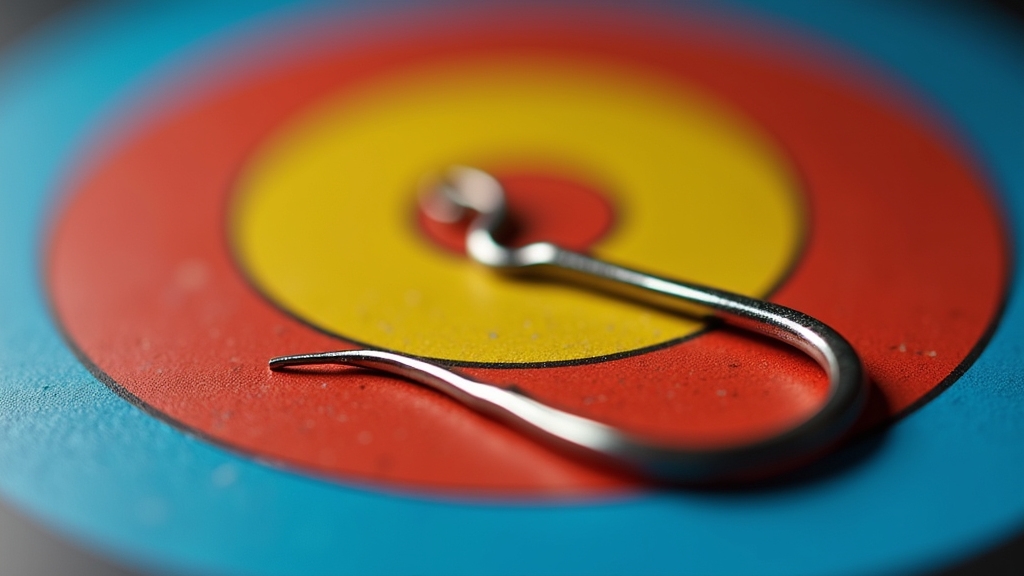
Consider one client who consistently matched with manipulative men. We discovered the algorithm was responding to her tendency to engage with profiles displaying subtle narcissistic traits – excessive confidence, slightly arrogant humor, and carefully curated images. By understanding this pattern, we deliberately retrained the algorithm through changed engagement behaviors.
Research confirms that women over 30 who understand today’s relationship dynamics are four times more likely to find compatible partners than those using outdated approaches. Understanding these new rules of engagement helps you find authentic connection without wasting time on dead-end relationships or manipulative partners. Successful women recognize how dramatically dating has changed and adapt accordingly.
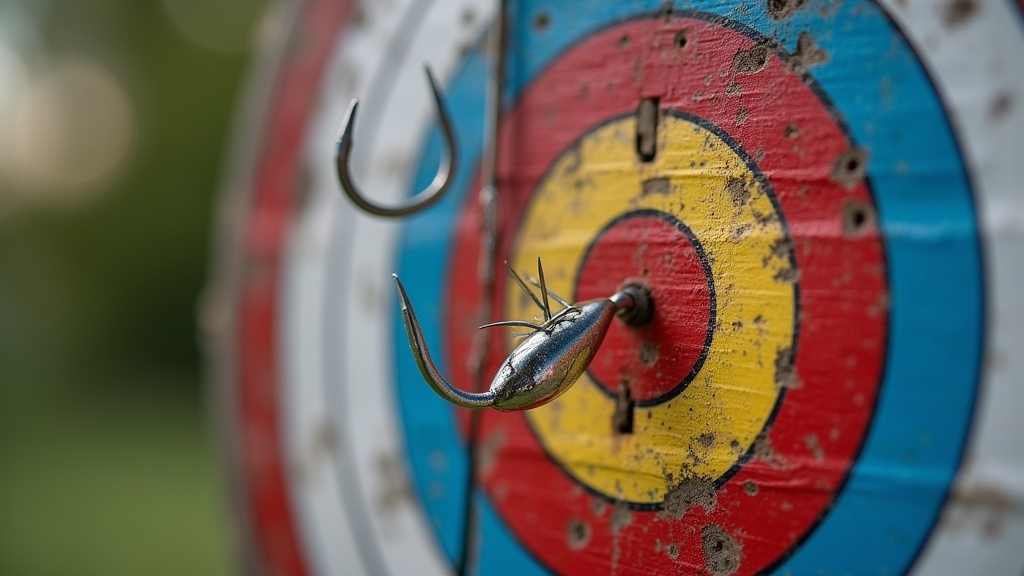
The prevalence of ‘situationships’ in 2025 requires new skills to identify men genuinely available for commitment. These ambiguous relationships – more than friendship but less than commitment – can become hiding places for emotionally unavailable people or those with narcissistic tendencies. They offer connection without responsibility. Developing specific skills helps determine early whether someone is open to building something meaningful or merely seeking convenience.
Your experience with a narcissist provides potential advantages in this landscape when you transform that pain into wisdom. You’ve witnessed manipulation firsthand and understand love-bombing and devaluation cycles. This painful education becomes valuable when refined into awareness rather than cynicism or defensiveness.
Women who’ve overcome narcissistic relationships often develop remarkable abilities to detect subtle manipulation. They notice discrepancies between words and actions, inconsistencies in stories, and boundary-testing behavior. These skills protect you in today’s dating environment when used as tools rather than barriers to connection.
By understanding these dynamics, you position yourself strategically in the modern dating world. You can use the same platforms as everyone else but with greater awareness of their mechanics. Your engagement with potential partners becomes more effective through understanding current relationship formation patterns.
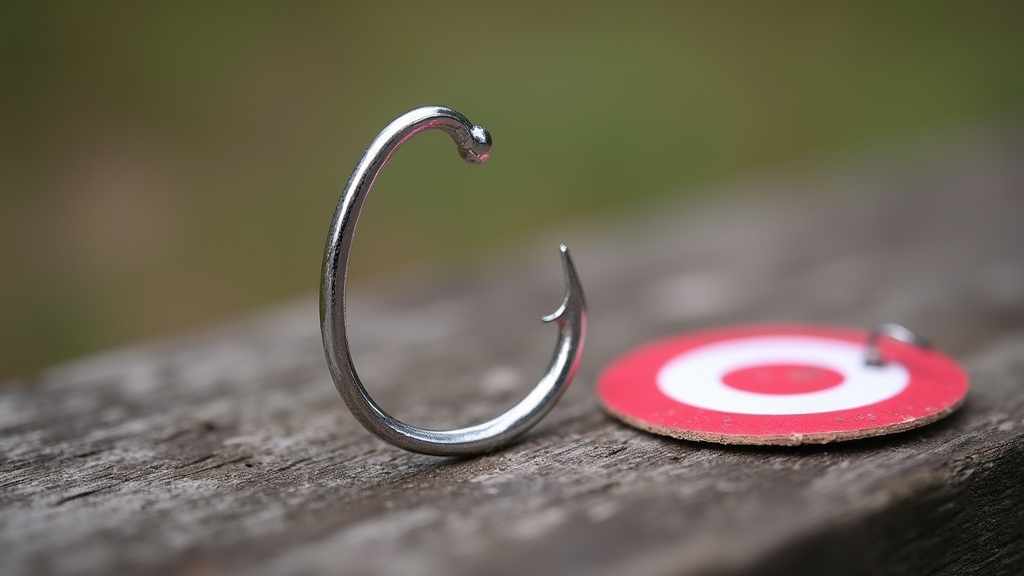
Modern dating in 2025 requires specific adjustments for women over 30. You need to understand and actively train dating algorithms to show healthier matches. Developing clear systems for evaluating relationship potential early prevents emotional attachment from clouding judgment. Creating a dating approach aligned with current relationship formation patterns rather than outdated models dramatically improves outcomes.
Communication styles must adapt to today’s accelerated dating environment. The pace and expectations around text responses, date planning, and relationship progression follow patterns that didn’t exist five years ago. Understanding these unwritten rules helps avoid misunderstandings that derail potential connections.
The relationship timeline has also shifted significantly. In 2025, relationships either progress quickly toward clarity or remain indefinitely ambiguous. The traditional gradual escalation model has largely disappeared. Recognizing this pattern helps you avoid investing in situations that won’t progress toward your relationship goals.
Now that you understand the landscape, let’s explore the subtle signs that indicate whether a man has healthy relationship potential. In this new dating environment, identifying green flags early is just as important as spotting red flags.
Green Flags: Spotting Healthy Relationship Potential
What if you’ve been trained to spot red flags but have no idea what green flags actually look like? After working with hundreds of women recovering from narcissistic relationships, I’ve noticed something striking. They become incredibly skilled at identifying warning signs but often miss clear indicators of healthy relationship potential.
After narcissistic abuse, women become experts at identifying warning signs. They can spot love bombing, rushed intimacy, and boundary violations easily. This ability is crucial, but it creates a blind spot for recognizing healthy relationship potential.

This hypervigilance can cause you to overlook good partners or misinterpret neutral behaviors. One client ended a promising relationship because the man didn’t text back for six hours. In her abusive past, delayed texts were punishment tactics. This new partner was simply in meetings at work. Her protective system flagged a neutral behavior as threatening.
The most reliable green flags appear in subtle patterns of consistency, emotional regulation, and respect for boundaries. They show up in small moments – how he responds when you say no, how he handles disappointment, how he talks about past relationships.
Research shows that early dating behaviors predict long-term relationship health with 82% accuracy. The way someone responds when a restaurant loses their reservation reveals far more about their character than carefully crafted dating profiles. These reactions demonstrate their actual emotional regulation capabilities.
Sarah told me how her now-husband responded when she canceled their third date for a work emergency. He said, “I’m disappointed because I was looking forward to seeing you, but I understand. Can we reschedule?” This balanced response – acknowledging his feelings while respecting her situation – was a powerful green flag she almost missed.
Watch carefully when you say no to something small. Does he try to persuade you to change your mind? Does he respect your decision without making you feel guilty? One client, Megan, mentioned that her partner asked her to attend a family event. When she explained she needed alone time that weekend, he simply said, “I understand. Family gatherings can be overwhelming. Would you like to meet them another time?” His ability to accept her needs without taking it personally signaled emotional maturity.
A narcissist trained you to ignore your intuition – that quiet inner voice that notices when something feels wrong or right. Rebuilding that connection to your gut feelings is essential for recognizing genuine green flags.
The subtle signs that indicate healthy relationship potential go beyond obvious charm. Look for consistent behavior over time rather than intense connection. Notice how he handles stress and whether he takes responsibility for his actions. Pay attention to whether he respects differences of opinion.

Mark showed green flags that Julie nearly missed. When she expressed a boundary about not wanting to text throughout the workday, he respected it without making her feel guilty. When they disagreed about a movie, he didn’t try to convince her his opinion was right. These small moments revealed his respect for her as a separate person.
Another green flag is how a potential partner talks about their past relationships. Do they take some responsibility, or is every ex “crazy”? Tara shared how her current partner described his divorce: “We both contributed to our problems. I wasn’t emotionally available enough, and I’ve worked on that.” This self-awareness demonstrated relationship readiness.
Also notice how potential partners respond to vulnerability. Healthy partners can share appropriate vulnerability and receive yours with respect. They don’t use your vulnerable moments against you later.
Healthy relationship potential shows up in how someone makes you feel about yourself. Do you need to perform or be perfect around them? Or do you feel accepted as you are? Your nervous system often recognizes safety before your conscious mind can articulate it.

As you practice recognizing these green flags, be patient with yourself. After narcissistic abuse, your detection system needs recalibration. You might miss some positive signs or misinterpret neutral behaviors at first. With practice and awareness, you’ll develop a more balanced ability to recognize both warning signs and indicators of healthy potential.
Breaking Your Unconscious Relationship Patterns
Ever wondered why you keep ending up with similar partners despite promising yourself ‘never again’? You’re not the first woman to find herself thinking, “How did I get here again? I swore I’d never date another man like my ex.” This pattern is frustrating but surprisingly common.
Your unconscious attachment patterns were formed long before your narcissistic relationship. These patterns began developing in your earliest relationships, usually with your parents or caregivers. They created a template for what love feels like—what you expect, what seems normal, and what triggers attraction. These patterns continue driving your choices without your awareness, operating beneath the surface of your conscious mind.

Even with all your knowledge about narcissism, these deeply embedded patterns can override your conscious intentions when emotions get involved. You can read every book about narcissistic abuse and still find yourself drawn to partners with similar traits to your ex. This happens because your unconscious mind follows familiar pathways.
Think of these neural pathways like well-worn trails through a forest. Your brain naturally follows these established routes because they require less energy than forging new paths. When you meet someone who triggers these familiar patterns, your nervous system responds automatically. You feel chemistry. Your body relaxes in a way it doesn’t with healthier potential partners—simply because your brain recognizes the familiar, not because it’s actually good for you.
A client named Rebecca described this phenomenon perfectly: “I can spot a narcissist from across the room when I’m helping my friends date. But when it comes to my own dating life, I keep finding myself attracted to men who later show the same patterns as my ex. It’s like my body betrays what my mind knows.”
Research shows that 67% of women who’ve experienced narcissistic abuse repeat similar relationship patterns without specific intervention to rewire these responses. This statistic offers hope. It means you’re not uniquely flawed—you’re experiencing a common neurobiological response that can be changed with the right approach.

The “chemistry” you feel with certain people might actually be your nervous system recognizing familiar trauma patterns rather than genuine compatibility. That intense attraction, the feeling that you’ve known someone forever after just one date, the sense of excitement mixed with anxiety—these sensations can actually be your body recognizing familiar relationship dynamics, even unhealthy ones.
Most dating advice focuses on conscious choices, ignoring how your limbic system makes decisions before your rational mind engages. Advice like “just choose better partners” assumes you’re making fully conscious choices, when in reality, attraction happens at a subconscious level first. Your limbic system—the emotional center of your brain—often decides who feels “right” long before your rational mind evaluates them.
Breaking these patterns requires techniques that go beyond simple awareness. You can’t think your way out of these patterns because they don’t originate in the thinking part of your brain. You need approaches that work with your nervous system—techniques that create new associations and help your body recognize what healthy connection actually feels like.
Conscious pattern interruption works effectively for breaking these cycles. When you notice yourself feeling attracted to someone who displays familiar warning signs, practice specific grounding techniques that bring your prefrontal cortex—your rational brain—back online. Take deep breaths, physically step away temporarily, or do a quick body scan to notice where you feel tension or relaxation.
Another powerful approach involves deliberately seeking experiences that help your nervous system recognize healthy connection. Develop friendships with people who treat you with consistent respect, work with a somatic therapist who helps you recognize how safety feels in your body, or take social dance classes where you practice healthy connection within clear boundaries.

The key insight here is that breaking these patterns isn’t about willpower. It’s about working with your neurobiological reality to create new pathways and responses. It’s teaching your nervous system a new definition of connection that excludes unhealthy dynamics you’ve experienced before.
Now that you understand why these patterns persist despite your best intentions, let’s explore the specific questions you should ask on early dates to reveal character beneath the surface. While working on rewiring your internal responses, you can also get better at gathering information that helps your conscious mind evaluate potential partners more effectively.
First Date Detective: Questions That Reveal Character
What if you could identify a potential narcissist within the first two dates, saving yourself months or years of pain? Imagine having a set of questions that reveal someone’s true character before you invest your heart.
The questions you ask in early dating reveal crucial information about character. They show you how a person handles vulnerability, how they respect boundaries, and how they respond to differences of opinion. Every answer gives you clues about who they really are, beyond who they claim to be.
Most women ask surface-level questions or avoid deeper topics for fear of seeming ‘too intense.’ They stick to safe topics like favorite movies or travel experiences. While these conversations can be fun, they miss crucial character information that could save you from another painful relationship. You end up learning about their hobbies but nothing about how they’ll treat you when things get difficult.
I worked with a client named Jamie who spent six months dating a man before discovering his explosive anger issues. When we looked back at their early dates, she realized she’d never asked questions that might have revealed this side of him. She was afraid of seeming nosy or pushing too hard. That fear cost her six months of emotional investment in someone incompatible with her need for emotional safety.
Strategic questions about past relationships, conflict resolution, and personal growth reveal patterns that predict future behavior with surprising accuracy. When someone tells you about a disagreement with a coworker, they’re showing you how they’ll handle conflicts with you. When they describe a personal challenge they’ve overcome, they reveal their capacity for self-awareness and growth. These stories preview how they’ll behave in your relationship.
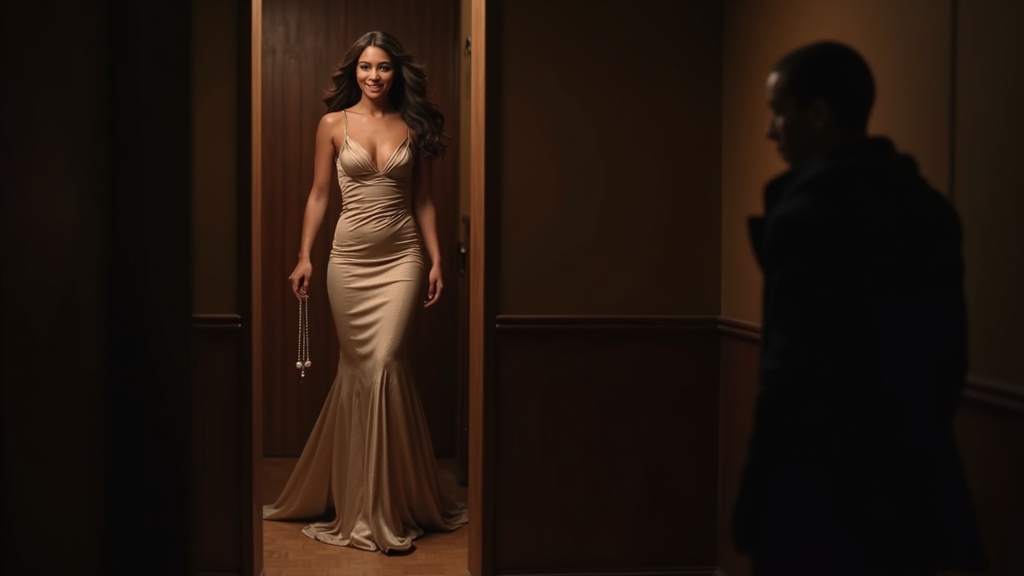
Research shows that how someone describes their exes is 78% predictive of how they’ll eventually describe you. Pay close attention when someone talks about past relationships. Do they take any responsibility for the problems, or was everything the ex’s fault? Can they identify what they learned from the experience? Someone who portrays every ex as “crazy” while taking zero responsibility is showing you exactly how they’ll talk about you someday.
The key is interpreting the answers beyond the content to the underlying character traits they reveal. Listen for emotional intelligence indicators like their ability to name emotions, understand others’ perspectives, and take appropriate responsibility. Watch their body language when discussing uncomfortable topics. Inconsistencies often reveal when someone is presenting a false front.
A narcissist can fake many things, but certain question sequences create inconsistencies that expose manipulation attempts. For instance, asking about the same topic in different ways throughout the evening can reveal whether someone gives consistent answers or changes their story to match what they think you want to hear.
Here’s how one of these conversations might unfold:
You: “What did you learn from your last relationship?”
Date: “My ex was totally crazy. She was always jealous and controlling.”
You: (Later in the evening) “What would your ex say was the biggest challenge in your relationship?”
Date: (Uncomfortable pause) “Uh… probably that I worked too much. But that’s just because she was needy.”
Notice how the response focuses entirely on blaming the ex, with no self-reflection. This reveals a potential red flag worth investigating further.
Here are specific questions to ask on early dates to reveal character:
“What did you learn from your last relationship?” This reveals their capacity for self-reflection and growth.
“Tell me about a time you made a mistake and how you handled it.” This shows their ability to take responsibility and approach to making amends.
“How do you typically handle disagreements?” This reveals their conflict resolution style.
“What are you working on improving about yourself right now?” This shows self-awareness and growth mindset.
When interpreting responses, look beyond the specific content to:
- Do they show appropriate emotional depth?
- Do they demonstrate empathy when discussing situations involving others?
- Can they talk about difficult topics without becoming defensive?
- Do their stories show a pattern of blaming others?
- Can they laugh at themselves and show humility?
These questions aren’t about finding a perfect person—everyone has flaws and past mistakes. The goal is to identify whether someone has the self-awareness, empathy, and emotional regulation needed for a healthy relationship.
With these tools in place, we need to address the final piece: rebuilding trust in your own judgment. Because even the best questions won’t help if you don’t trust yourself to interpret the answers correctly. After narcissistic abuse, many women doubt their perceptions so deeply that they miss obvious red flags. Building confidence in your own discernment is just as important as knowing what questions to ask.
Rebuilding Trust in Your Judgment
What if the greatest casualty of your narcissistic relationship wasn’t the wasted time, but your trust in yourself? I’ve noticed this pattern with nearly every woman I work with—they come to me knowing all the red flags and warning signs, but they no longer trust themselves to recognize them.
After narcissistic abuse, women struggle to trust their perceptions, feelings, and decision-making abilities. You constantly second-guess yourself: Did he really do something wrong? Is your concern legitimate, or are you just being paranoid because of your past? This exhausting internal questioning undermines your confidence in dating situations.
This self-doubt becomes a self-fulfilling prophecy. When you don’t trust yourself, you might dismiss good partners because you fear you’re missing something, or ignore warning signs with harmful people because you doubt your discomfort. You think, “Maybe I’m just being too sensitive” or “I should give them another chance.”
The narcissist systematically trained you to question your reality—programming that persists after the relationship ends. They questioned your perceptions: “That’s not what happened.” They dismissed your feelings: “You’re too sensitive.” They reversed blame: “If you hadn’t done X, I wouldn’t have had to do Y.” This reality distortion created neural pathways that continue affecting how you process information today.

Research shows rebuilding self-trust requires specific, consistent practices over time. Your nervous system needs practical experiences proving your perceptions are accurate. This means creating opportunities to practice trusting yourself, recognizing when you’re right, and gradually building confidence in your internal guidance system.
Your body recognizes danger before your conscious mind does. During your relationship with a narcissist, you learned to ignore these physical warning signals—the knot in your stomach, tension in your shoulders, shallow breathing. These responses were your intuition trying to protect you, but you were taught to override them.
Most recovery approaches focus on cognitive understanding while neglecting the bodily dimension of intuition. Therapy helps you understand narcissistic behavior patterns intellectually, but often misses helping you reconnect with your body’s wisdom. You need both the intellectual understanding and embodied knowing to rebuild complete trust.
Rachel, who survived a six-year narcissistic relationship, described this powerfully: “I knew all the terms—gaslighting, love bombing, devaluation—better than most therapists. But when dating again, I felt completely lost. My head recognized the signs, but my body remained disconnected from my decisions. I’d sit across from someone feeling physically ill but talk myself into seeing them again because I didn’t trust that my nausea was actually meaningful information.”
Here’s how to rebuild this vital mind-body connection:
Start with mindfulness practices like daily body scans. Check in with physical sensations—what feels tight, warm, cold, or relaxed. Keep a physical sensation journal during interactions, noting when your chest tightens or breathing changes. Over time, you’ll recognize patterns that distinguish between anxiety and intuitive warnings.
Make small decisions and honor them. Choose tea instead of coffee and drink the tea. Decide to take a walk instead of watching TV and take that walk. These seemingly minor choices build neural pathways of self-trust. Each time you honor your preference, you tell your brain your choices matter.
Practice in low-stakes situations first. Make small decisions, note outcomes, and gradually increase to bigger decisions. Pause to notice whether things turned out as expected. This builds evidence that your judgment is reliable.
Set boundaries in safe relationships with friends or family who respect you. Notice how it feels when boundaries are honored, creating contrast to how it felt when the narcissist violated them.
Learn to distinguish anxiety from intuition. Anxiety feels scattered with racing thoughts and catastrophizing. Intuition typically feels calm and clear, even when warning about danger. This distinction helps you trust appropriate gut feelings when dating.
With self-trust establishing your foundation, you can determine which boundaries matter most when dating high-value partners. Not all boundaries serve the same purpose, and focusing on the wrong ones leaves you unprotected where it counts.
The Boundaries That Actually Matter
Are you exhausting yourself maintaining 100 boundaries when only a few truly protect your heart and future? I see this pattern constantly with women recovering from narcissistic relationships. They create endless lists of rules that leave them feeling safe on paper but exhausted and isolated in reality.
After narcissistic abuse, women often create extensive boundary lists that prevent genuine connection while still missing crucial protections. I worked with a client who had a three-page document of dating boundaries after her narcissistic marriage ended. She tracked everything from how quickly a man should text back to what topics were acceptable on early dates. Despite this extensive list, she still found herself feeling uncomfortable in situations her boundaries hadn’t addressed. Meanwhile, potential partners felt like they were navigating a minefield rather than building a connection.
This approach resembles installing an elaborate security system with sensors on every window and motion detectors in each room, while accidentally leaving your front door unlocked. Your attention becomes so scattered across minor alerts that you miss the real threats entering through obvious pathways.
Many women become so focused on preventing the specific behaviors their narcissistic ex displayed that they miss new warning signs or create rules that healthy partners find confusing or restrictive.
The most effective boundaries aren’t about controlling others’ behavior but about your own responses and what you will accept in your life. You can’t control whether someone respects your time, but you can control whether you continue seeing someone who consistently shows up late. You can’t force someone to communicate respectfully, but you can choose to end conversations when the tone becomes disrespectful.
Research shows that women with fewer, clearer, non-negotiable boundaries report healthier relationships than those with numerous flexible rules. Five boundaries you consistently enforce create more safety than fifty boundaries you sometimes uphold and sometimes ignore. Clear boundaries send a consistent message about your worth, while constantly shifting ones create confusion for both you and your partner.
Your nervous system needs certain boundaries to feel safe, while others are simply reactions to past hurt. This distinction is crucial. True safety boundaries trigger your nervous system when violated—you feel a gut response, tension, or unease. Reactive boundaries tend to trigger intellectual discomfort rather than physical responses. Notice which boundaries, when honored, help your body feel truly safe rather than just intellectually satisfied.
The way you communicate and enforce boundaries matters as much as the boundaries themselves. Effective boundary communication is calm, clear, and consistent. You state what you need without justification or attack, then follow through with appropriate consequences when boundaries aren’t respected.
So what boundaries actually matter most when dating high-value partners? The essential non-negotiables include:
- Consistent respect boundaries—how you’re spoken to, how your time is valued, and how your thoughts and feelings are treated
- Independence boundaries—financial, emotional, and social autonomy that prevent isolation or dependency
- Transparency and honesty boundaries—the foundation of trust that requires enforcement when even small deliberate lies are discovered
Some boundaries that might be holding you back from connection include rigid rules about communication timing, expectations about mind-reading, or requirements about specific interests or backgrounds. These “preference boundaries” often filter out compatible partners without actually protecting your heart.
Remember that healthy boundaries evolve over time. What you need in early dating might differ from what you need in a committed relationship. Healthy partners understand this evolution and respect your changing needs.
With these essential boundaries in place, you’ll be protected where it truly matters. You’ll filter out harmful partners while remaining open to genuine connection. The right person won’t feel restricted by your core boundaries—they’ll respect them because they value your wellbeing.
Now let’s examine how your self-presentation might be attracting the wrong partners. Because even with perfect boundaries, if your dating profile and early dating behavior send signals that attract manipulative people, you’ll find yourself constantly having to enforce those boundaries rather than enjoying a healthy connection.
Attracting the Right Partners Through Authentic Self-Presentation
What if the way you’re presenting yourself is actually attracting the exact wrong type of partner? You might be sending signals that appeal to manipulative people without even realizing it.
Your self-presentation—from dating profiles to first date behavior—sends powerful signals that attract specific types of people. Every photo you choose, story you tell, and even your texting style acts as a filter that determines who pursues you. Think about it like fishing with specific bait—certain bait attracts certain fish, whether you intended it or not.
Many women unknowingly present themselves in ways that appeal to narcissists while deterring emotionally healthy partners. After working with hundreds of women recovering from narcissistic relationships, I’ve noticed consistent patterns. Women who emphasize their empathy, caregiving nature, and willingness to “work through anything” in their dating profiles often attract partners looking to exploit these exact qualities.
The photos you choose speak volumes about what you value. Profile pictures emphasizing physical appearance alone tend to attract partners focused primarily on physical connection. Images showing you engaged in activities you love attract people who value those same experiences. Even your expressions—whether confident, vulnerable, or guarded—filter who responds to your profile.
The stories you tell on early dates also act as powerful signals. When you share past relationship experiences, you’re giving information about what you’ve tolerated before and might tolerate again. Women who speak about taking care of troubled partners often find themselves with new partners who need “fixing.” Those who emphasize independence attract partners who either value that quality or see it as a challenge to overcome.
Research indicates that certain vulnerability displays attract protectors while others attract predators—and the difference is subtle but crucial. Healthy vulnerability shows self-awareness and appropriate trust-building, like sharing meaningful experiences at the right time. Unhealthy vulnerability includes oversharing traumatic details too early, describing patterns of mistreatment you’ve accepted, or presenting yourself as needing rescue.
One client’s dating profile emphasized how understanding and patient she was with difficult people. She described herself as “someone who never gives up on people” and “willing to see the best in everyone.” These qualities attracted partners looking for someone without firm boundaries. When she adjusted her profile to emphasize her values and interests rather than endless patience, her matches improved dramatically. Within weeks, she was connecting with people who appreciated her boundaries rather than seeking to exploit her flexibility.
Your past relationship may have trained you to present yourself in ways that signal “perfect target” to the next narcissist. The narcissist likely rewarded certain behaviors—perhaps caretaking, forgiveness without accountability, or self-blame when problems arose. Over time, you may have learned to lead with these qualities, unaware they act as beacons for incompatible partners.
The 2025 dating landscape has specific presentation norms that can help you attract aligned partners. Dating apps now reward authentic representation rather than idealized versions of yourself. Showing genuine interests and boundaries attracts more compatible matches than appearing perfect or endlessly accommodating.
Small adjustments to your self-presentation can dramatically change who shows interest. Manipulative people often see traits like giving endless chances, seeing the best in everyone despite evidence to the contrary, or prioritizing harmony above all else as opportunities to exploit.
Consider these specific adjustments: First, evaluate your dating profiles—replace emphasis on caretaking with clear statements about your interests, values, and what you bring to a relationship. Second, discuss boundaries early in dating conversations as normal parts of healthy connection. Third, notice how potential partners respond when you’re not endlessly accommodating.
I worked with a woman who always told stories about taking care of others on first dates. She thought this showed her nurturing nature but consistently attracted men looking for a caretaker, not a partner. When she started sharing stories about her accomplishments and interests instead, she began attracting men who wanted to know her, not just benefit from her caring nature.
Understanding how your self-presentation attracts specific partners is powerful knowledge when paired with concrete actions. By adjusting your bait—the signals you send through profiles, communication, and early dating behavior—you’ll attract entirely different fish in your dating pool.
14. Your 7-Day Dating Transformation Plan
What if you could completely change your dating experience in just one week of focused action? You don’t need months of therapy or years of healing to start seeing real changes in who you attract and how you feel about dating. Small, specific changes can create dramatic shifts in your dating life when you apply them consistently.
Most women make the same mistake after narcissistic relationships. They try to change everything at once—their profile, their communication style, their boundaries, their self-trust—and quickly become overwhelmed. When overwhelm kicks in, they fall back into familiar patterns that keep attracting the wrong partners. Your brain naturally returns to familiar pathways when stressed, even harmful ones.
That’s why I’ve created a structured 7-day plan that addresses one key area each day. This approach builds momentum without overwhelming your nervous system. You focus on mastering one skill before moving to the next, creating a foundation for lasting change.
Women who follow structured recovery plans after narcissistic relationships find healthy connections faster than those taking a scattered approach. These plans address both internal and external changes needed to break harmful patterns, transforming how you evaluate potential partners and respond to early dating behaviors.
YOUR 7-DAY TRANSFORMATION PLAN
Day 1: Profile Reset
- Examine your dating profiles with fresh eyes
- Remove language that signals “I’ll take care of you” or “I’ll accept anything”
- Add images showing you engaged in activities you genuinely enjoy
- Homework: Rewrite your profile summary focusing on who you are, not what you can offer
Day 2: Body Wisdom Reconnection
- Practice reconnecting with physical warning signals
- Set a timer for three body scans throughout the day
- Notice tension, relaxation, warmth, or coldness without judgment
- Homework: Practice during one conversation, noting how your body responds
Day 3: Boundary Identification
- Identify true non-negotiable boundaries versus preferences
- Create “Must-Haves” list (maximum five deal-breakers)
- Develop “Nice-to-Haves” list (preferences that aren’t essential)
- Homework: Write a clear statement for each non-negotiable boundary
Day 4: Response Pattern Awareness
- Become aware of your automatic responses to attention
- Notice feelings when someone compliments you or shows interest
- Recognize if you feel immediate obligation or doubt sincerity
- Homework: Document internal responses to three different interactions
Day 5: Early Dating Questions Practice
- Master asking character-revealing questions
- Choose three questions from our “First Date Detective” section
- Practice until they feel natural in conversation
- Homework: Use one question in today’s conversation
Day 6: Self-Presentation Shift
- Present yourself authentically rather than people-pleasing
- Pause before responding to check if you’re expressing true thoughts
- Adjust communication to reflect authenticity
- Homework: Have one conversation avoiding all people-pleasing behaviors
Day 7: Dating Strategy Selection
- Decide whether hunting or fishing is right for your situation
- Review strategy criteria and make a clear choice for the next three months
- Align your approach with your personality and goals
- Homework: Make specific adjustments based on your chosen strategy
Each day builds on the previous one, creating compound effects that transform both your external presentation and internal filters. You’re changing your profile and communication style while simultaneously updating your boundaries and body connection.
By this time next week, you’ll operate with new dating awareness and skills. Your profile will attract different people. Your body will signal reliable information about who feels safe. Your questions will reveal character earlier. Most importantly, you’ll trust yourself to make better choices.
This plan works by addressing both sides of the dating equation simultaneously—changing who you attract AND how you evaluate those people. The magic happens when both shifts occur together.
This week is about planting seeds that will continue growing. While you won’t be perfectly healed in seven days, you’ll have concrete tools and practices that create lasting change when consistently applied. The key is consistency—doing these small actions repeatedly until they become your new normal, transforming your dating life from uncertainty to confidence.
Conclusion
Dating after narcissistic abuse is about becoming someone new yourself. You’re building a woman who trusts her judgment, values her worth, and recognizes genuine connection when it appears.
This journey gives you powerful tools to transform your dating experience. Your past relationship was preparation for recognizing and appreciating healthy love.
Commit to one meaningful action from today’s article this week. Whether assessing your market value honestly, enforcing a key boundary, or asking a revealing question on your next date – take this step toward healing.
You deserve a relationship where you feel seen, respected, and truly loved.










